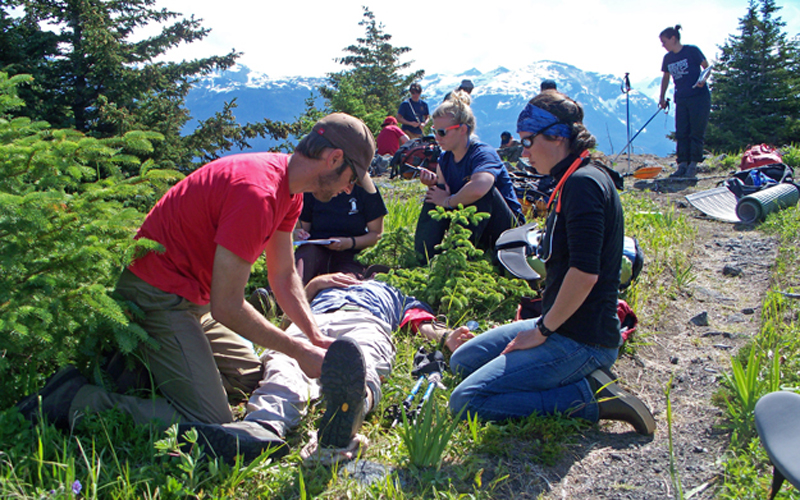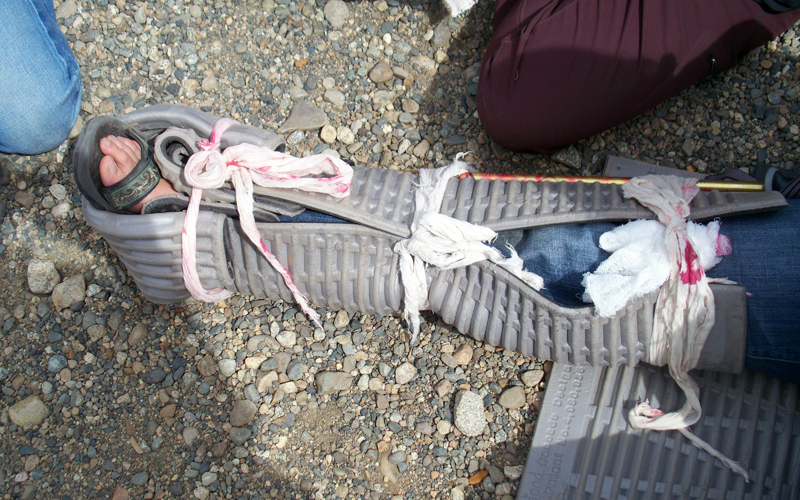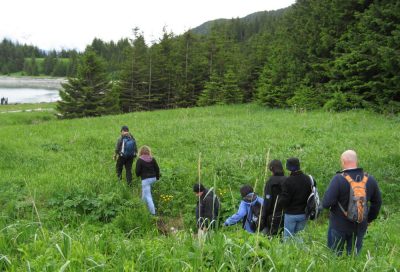3 days/24 hours
Learn to handle backcountry emergencies through our first aid course
The Chilkoot High Adventure Wilderness First Aid course is a 3 day introduction to Basic Life Support skills and general medical concepts. The Chilkoot High Adventure Wilderness First Aid course meets or exceeds the standards of the American Red Cross Standard First Aid and meets or exceeds the standards of both the American Red Cross and American Heart Association CPR courses.
This can be structured as an independent 3-day segment at base camp, or conducted as a part of other High Adventure programming (mountaineering, sea kayaking, backpacking, etc…)
Chilkoot High Adventure Base First Aid Instructors
Bring a wealth of knowledge from years of guiding and instructing in wilderness areas. They present scenarios you are likely to encounter in the field, and prepare you to handle emergencies efficiently, safely and professionally. They understand the realities of managing emergencies in remote locations, not only in Alaska, but around the world.
While some time is spent in a classroom, the course utilizes a scenario-based, hands-on, practical approach to the curriculum. Once scouts have learned the tools for assessment, treatment, and transport in a backcountry setting, scouts will practice numerous scenarios incorporating problem solving, teamwork, communications and client care.
The Chilkoot High Adventure Base Emergency Medicine Curriculum
Equips scouts with the knowledge and practical experience to effectively administer first aid in a wilderness setting. Here is a sample of some of the topics covered:
Scene Safety:
Are rescuers going to be warm enough? Are you exposed to rock fall from above? The need for safety is paramount, for rescuers, patients and bystanders alike. We’ll go over body substance isolation and other key safety elements.
Shock:
Anaphylactic, volume, or septic. Learn to recognize the signs and symptoms of shock, how to treat patients, and how to differentiate shock from stress reactions.
C-spine Precautions:
Was there mechanism for injury? Learn to prevent unnecessary injury and paralysis by taking proper care of the spine and making an impromptu backboard out of a backpack.
CPR:
The science and techniques of cardio-pulmonary resuscitation are continually changing and evolving. You’ll learn the most up-to-date techniques and practice this crucial life-saving skill.
Patient Assessment:
You’ll learn how to do a rapid initial assessment, do a thorough full body secondary assessment, take vitals, and recognize potential life threatening injuries and illnesses.
Cold Injuries:
Recognize and treat frostbite. Learn techniques for prevention and treatment of hypothermia in the backcountry.
CERTIFICATIONS – Upon completion of the 3 day course, participants may qualify for the following certifications:
 Wilderness First Aid
Wilderness First Aid
International Wilderness Leadership School
 BLS for the Healthcare Provider
BLS for the Healthcare Provider
American Red Cross
 CPR for the Professional Rescuer
CPR for the Professional Rescuer
American Heart Association




